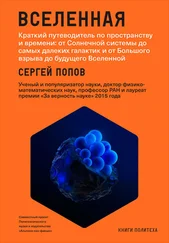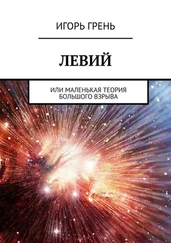уверяют своих коллег : Kuhn, The Copernican Revolution , 229–30; Beller, Quantum Dialogue: The Making of a Revolution , 176–77.
творческая искра науки : Lightman, “Magic on the Mind.”
Нет четкой границы : Lange, An Introduction to the Philosophy of Physics: Locality, Fields, Energy, and Mass , 249–50.
три широкие гипотезы : Newton, Mathematical Principles , vol. 1, 174; Hesse, Forces and Fields , 148–53; McMullin, “The Explanation of Distant Action,” 293–301.
частицы оказывают силовое воздействие : Newton, Mathematical Principles , vol. 2, 313.
яростных религиозных фанатиков : van Lunteren, “Nicolas Fatio de Duillier on the Mechanical Cause of Universal Gravitation.”
« нематериальном » : Newton, Philosophical Writings , 102.
« бестелесном » : Newton, Mathematical Principles , vol. 1, 174.
« неосязаемом » : Leibniz, Philosophical Papers and Letters: A Selection , vol. 2, 696.
проникать внутрь планет : Janiak, Newton as Philosopher , 76–79; Kochiras, “Gravity and Newton’s Substance Counting Problem.”
способствовали появлению концепции : Gale, “Leibniz and Some Aspects of Field Dynamics”; Friedman, Introduction to Kant’s Metaphysical Foundations of Natural Science , ix– x.
вездесущности Бога : Newton, Philosophical Writings , 22, 25–27.
Бог уже существует : Kochiras, “Gravity and Newton’s Substance Counting Problem,” 270–72; Janiak, Newton as Philosopher , 37–40.
монады дают начало : Gale, “Leibniz and Some Aspects of Field Dynamics,” 39–40; Slowik, “The ‘Properties’ of Leibnizian Space: Whither Relationism?,” 123–24, 128–29.
Никто из них не думал : Newton, Philosophical Writings , 21–22; Leibniz, Leibniz: New Essays on Human Understanding , book 2, chap. 13, paragraph 17.
помог Ньютону переработать : Janiak, Newton as Philosopher , 90–94, 168–72.
относилась к атеизму : Newton, Philosophical Writings , 102; Henry, “‘Pray Do Not Ascribe That Notion to Me’: God and Newton’s Gravity.”
упоминал нелокальные силы : Hesse, Forces and Fields , 153–56, 180–88; Henry, “Gravity and De Gravitatione: The Development of Newton’s Ideas on Action at a Distance,” 20–23.
отвращать от себя механицистов - пуристов : Westfall, Life of Isaac Newton , 187–88.
абсолютно приемлемыми : van Lunteren, “Framing Hypotheses,” 68–90; Hesse, Forces and Fields , 155–56, 166, 187.
жидкости существуют в случаях магнетизма : Williams, The Origins of Field Theory , 17–27; Hesse, Forces and Fields , 182–83.
повернулась на 180 градусов : там же, 166.
казалось бы простое соударение : Jammer, Concepts of Force , 211.
сторонники локальности : Leibniz, Philosophical Papers and Letters , vol. 2, 446; Leucippus and Democritus, The Atomists , 84, 186–87, 192–93.
мгновенный разворот : Hesse, Forces and Fields , 163–66.
Главный немецкий философ : Kuehn, Kant: A Biography , 64.
о континууме сил : Friedman, “Introduction” pp. xvi– xix; Kant, Metaphysical Foundations of Natural Science , 34, 50–55; Williams, Origins of Field Theory , 37–43.
никогда не вступают в непосредственный контакт : Hesse, Forces and Fields , 163–66.
сводили локальные силы : van Lunteren, “Framing Hypotheses,” 126.
сводят незаурядные непостижимости : Mach, History and Root of the Principle of the Conservation of Energy , 55–56.
тяготение больше никого не беспокоит : Mach, History and Root of the Principle of the Conservation of Energy , 56.
лапки лягушек дергались : Kipnis, “Luigi Galvani and the Debate on Animal Electricity, 1791–1800,” 114.
влажным куском картона : там же, 135.
новую замечательную игрушку : Berkson, Fields of Force: The Development of a World View from Faraday to Einstein , 30.
восстанию против механистических взглядов : Williams, Origins of Field Theory , 31, 43.
возрождений магического мышления : Goodrick-Clarke, The Western Esoteric Traditions , 180.
сторонники были очарованы : Safranski and Osers, Schopenhauer and the Wild Years of Philosophy , 200–201.
разнообразные силы природы : Morus, When Physics Became King , 54–63.
свою первую батарейку : Stauffer, “Speculation and Experiment in the Background of Oersted’s Discovery of Electromagnetism,” 40.
не создает магнитных эффектов : там же, 43.
провод, соединенный с батареей : там же, 46.
слепа к другим объектам : Berkson, Fields of Force , 21–22.
вихревые движения : Maxwell, The Scientific Papers of James Clerk Maxwell , vol. 2, 317.
соглашались с атомистическим ньютоновским объяснением : Cantor, Optics After Newton: Theories of Light in Britain and Ireland, 1704 – 1840 , 29–31, 86–90, 204.
вдохновение в течении : там же, 129–30.
среди схоластов Средневековья : Hesse, Forces and Fields , 81.
использовать лазерную указку : Prutchi and Prutchi, Exploring Quantum Physics Through Hands-On Projects , 4–6.
При императоре : Morus, When Physics Became King , 23, 26–32.
склонны неправильно истолковывать : Cantor, Optics After Newton: Theories of Light in Britain and Ireland, 1704 – 1840 , 142–44.
Читать дальше
Конец ознакомительного отрывка
Купить книгу
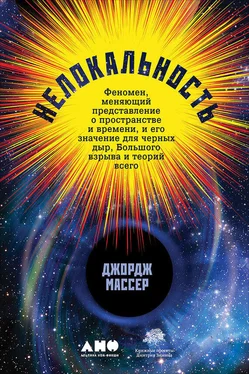
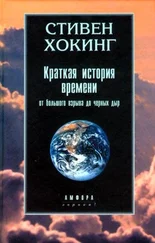
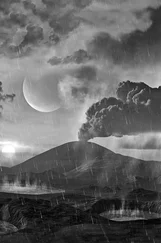
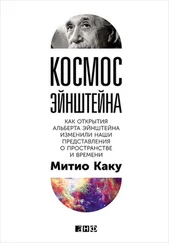




![Стивен Хокинг - Краткая история времени. От Большого взрыва до черных дыр [litres]](/books/416997/stiven-hoking-kratkaya-istoriya-vremeni-ot-bolshogo-thumb.webp)
